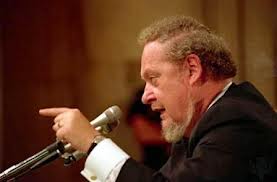The Consistency of Libertarian Judicial Activism

So constitutional journalists such as Linda Greenhouse have attacked the federalism argument that libertarian constitutional scholars such as Randy Barnett want to use to strike down the DOMA. The result, in her opinion, would leave the states “to their own devices” in determining what marriage is. So, again in her opinion, the result would be a denial of individual rights in those states which continue to define marriage as exclusively between a man and a woman.
But here’s Ilya Somin’s libertarian correction to Greenhouse’s limited perception:
Greenhouse’s argument is based on a fundamental error: she conflates structural limits on Congress’ authority outlined in Article I of the Constitution with individual rights constraints on the states. In reality, it is perfectly possible for a particular law to be both beyond the scope of Congress’ authority if enacted by the federal government and a violation of constitutional individual rights if adopted by a state. Our federalism brief merely claims that Congress lacks the constitutional authority to enact DOMA because the law exceeds the scope of Congress’ enumerated powers. That conclusion is perfectly consistent with the view that state laws banning gay marriage violate individual rights protected by the Fourteenth Amendment. Indeed, I myself have argued that the Court should strike down California’s Proposition 8 because it is unconstitutional sex discrimination. Similarly, we would argue that a federal law banning interracial marriage is also outside the scope of congressional power under Article I, while simultaneously endorsing the holding of Loving v. Virginia that state laws barring such marriages violate the Equal Protection Clause of the Fourteenth Amendment. The states’ sovereign authority over marriage – like all state sovereign authority – is constrained by constitutional individual rights. Nothing in our brief is inconsistent with that basic principle.
In other words, Greenhouse noticed only one barrel of the libertarians’ double-barreled judicial activism. When the second barrel fires, she should have noticed, it’s clear they’re aiming at the same result she is.
The Court can say that Congress can’t regulate marriage because it isn’t a commercial activity. It can, in other words, rely on the narrow view of the Congress’ power under Commerce Clause put forward by Barnett that allowed four justices to say the ObamaCare mandate isn’t constitutional. (The Chief Justice, of course, got out of the obvious implication of this view of the Commerce Clause by contorting his way to the conclusion that the ObamaCare mandate is really a tax. But nobody, it would seem, could say that the DOMA is really a tax.)
This way of explaining why Congress can’t regulate marriage doesn’t point to the conclusion that the states can do whatever they want with it. A libertarian readily concludes that Court can say state laws banning same-sex marriage are unconstitutional for the same equal-protection reason that laws banning interracial marriages are. Said libertarian might also say that such state restrictions on marriage are arbitrary deprivations of liberty or what Justice Kennedy, in Lawrence v. Texas, called autonomy with respect to personal relationships.
This second form of judicial activism would be an unprecedented constraint on federalism or the authority of the states.
The libertarian is all about finding constitutional limits to both the authority of Congress and the authority of state legislatures. He’s no respecter of either “the State” or states. He’s all about respecting or presuming the liberty of the free individual.
The libertarian position, we can say, isn’t the conservative position or the liberal position, because both conservatives and liberals have a more restrained view of the judiciary.
As I’ve said before, Chief Justice Roberts and Justice Scalia we can probably count on to vote to restrain the Court from striking down either DOMA or state laws restricting marriage to between a man and a woman. And Roberts also showed semi-incredible restraint by not using his view of the Commerce Clause to lead him to strike down ObamaCare.
Liberals, meanwhile, tend to join the libertarians on issues such as marriage. But they have a very permissive view of Congress’ power under the Commerce Clause, and they had the very opposite of the judicially activist view when it came to the ObamaCare mandate. Liberals tend to defer to “the State” (aka BIG GOVERNMENT) more than the states.
That’s why it’s fishy when they join the libertarians in playing the federalism card on DOMA, and we can see why Greenhouse should encourage them not to do it. They instead might encourage the libertarians to just say that Congress has no more right to trample on individuals through an arbitrarily restrictive or inegalitarian definition of marriage than do state legislatures.
We can conclude that this dispute between liberals and libertarians over federalism is mainly a misunderstanding: it’s conservative and even democratic (with a small “d”), not liberal or libertarian, to care about the people acting through the states.
Some conservatives such as George Will seem sincerely to think of federalism as the ticket to getting rid of the DOMA without declaring a constitutional right to same-sex marriage. But limiting the power of Congress over marriage will do nothing to make the real issues—the equal protection and “substantive due process” issues—go away. The real issues do concern whether laws restricting marriage to between a man and a woman really are as arbitrary as those that restricted marriage to members of the same race. We might remember that not even President Obama thought that a year ago.




